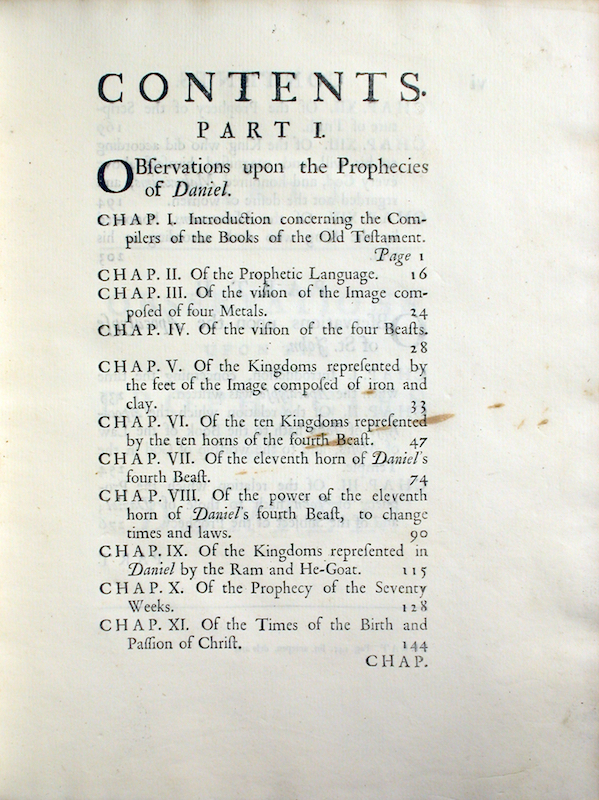

250, that he declared (the only loophole he could devise for this hard pressed scepticism) that the predictions were not written in the age of Babylon, but after the events themselves had transpired. It marked the time of this event so definitely that the Jews forbid any attempt to interpret its numbers since that prophecy shows them to be without excuse in rejecting Christ and so accurately had its minute and literal predictions been fulfilled down to the time of Porphyry, A.D. It gave the first definite chronological prophecy of the coming of the Messiah.


It located the most of its predictions within well defined prophetic periods, though reaching many centuries into the future. It was the first prophecy giving a consecutive history of the world from that time to the end. While beloved and honoured by the princes and potentates of Babylon, he enjoyed an infinitely higher exaltation in being beloved and honoured by God and His holy angels and admitted to a knowledge of the counsels of the Most High.ĭaniel's prophecies are in many respects the most remarkable of any in the sacred record and is the most comprehensive. But Daniel was entrusted with the more enduring honours. So brief was its supremacy, so transient its glory. Its period of greatness and prosperity was embraced within the limits of the lifetime of one man. From the height of its glory he saw that kingdom decline and pass into other hands. His life affords a most impressive lesson of the importance and advantage of maintaining from earliest youth strict integrity toward God.īut Daniel is not alone with his connection with the Chaldean monarchy that perpetuates the memory of Daniel and covers his name with honour. 606-536, predicted by Jeremiah (Jeremiah 25:11), Daniel resided at the court of Babylon most of the time as prime minister of that brilliant monarchy. But both these finished their work years before the close of the long and brilliant career of Daniel.ĭuring the seventy years of the captivity of the Jews, B.C. Ezekiel commenced soon after and a little later, Obadiah. Jeremiah and Habakkuk were yet uttering their prophecies. He first appears as one of the noble captives of Judah in the first year of Nebuchadnezzar, king of Babylon, at the commencement of the seventy years captivity, B.C. His birth and linage are left in complete obscurity except that he was of the royal line, probably of the house of David, which had at this time become very numerous. After a thorough study of the Word we find we have a more minute account of Daniel's early life than is recorded of that of any other prophet.


 0 kommentar(er)
0 kommentar(er)
